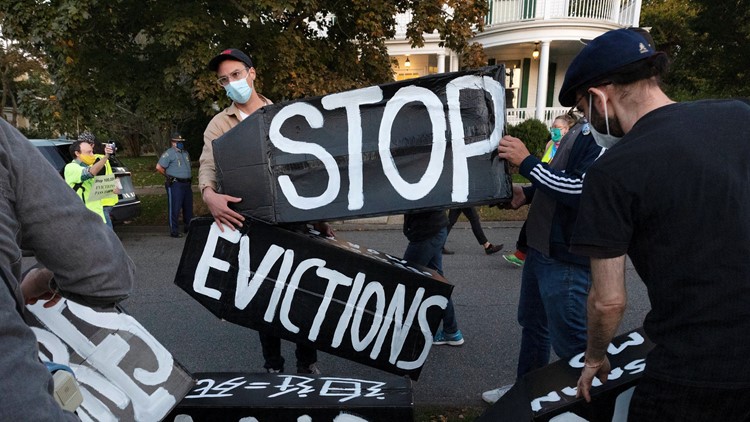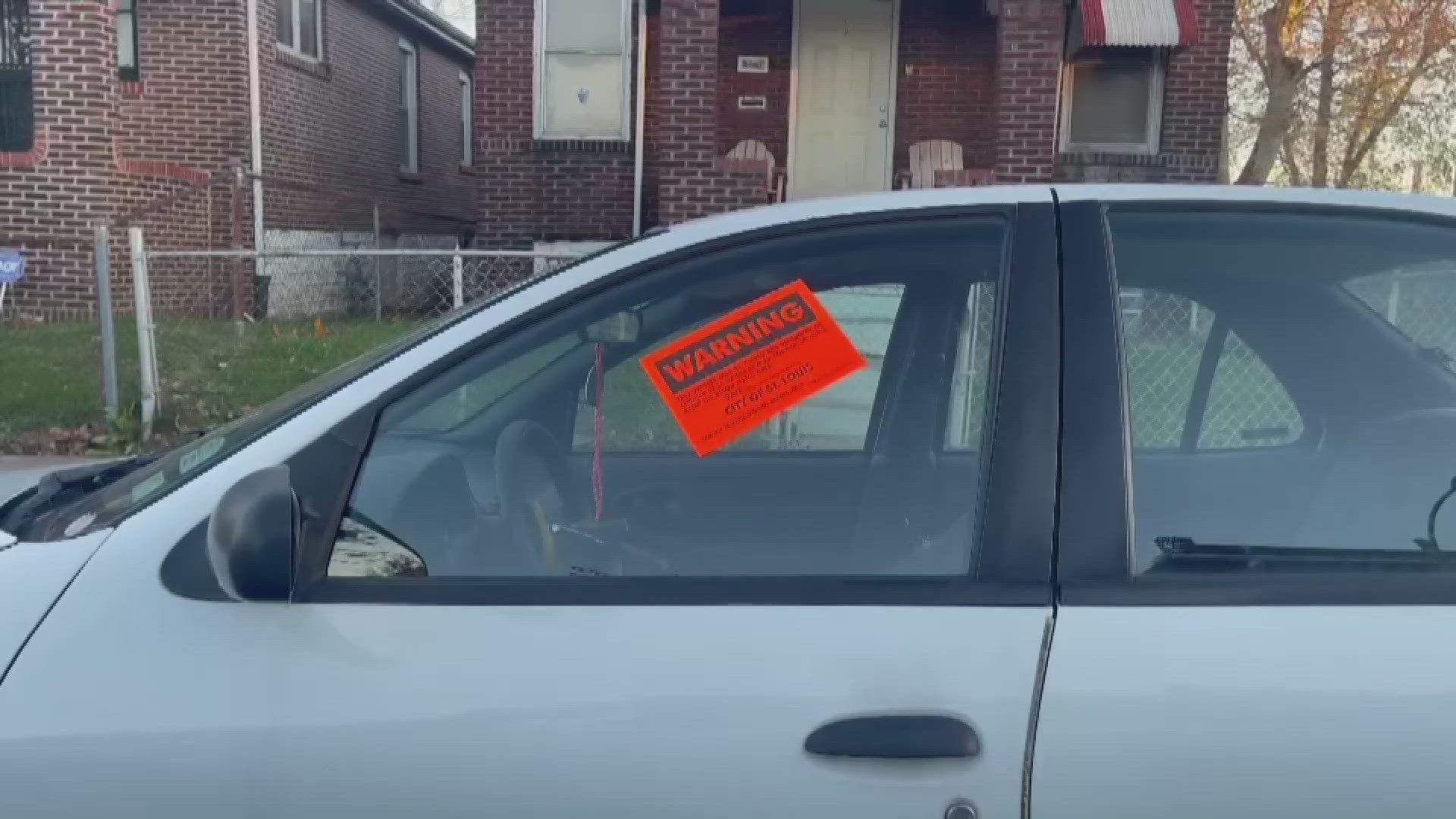ST. LOUIS — A federal freeze on most evictions that was enacted last year is scheduled to expire July 31, after the Biden administration extended the date by a month. The moratorium, put in place by the Centers for Disease Control and Prevention in September, has been the only tool keeping millions of tenants in their homes. Many of them lost jobs during the coronavirus pandemic and have fallen months behind on their rent.
Landlords successfully challenged the order in court, arguing that they also had bills to pay. They pointed out that tenants could access more than $45 billion in federal money set aside to help pay rents and related expenses.
Advocates for tenants say the distribution of the money has been slow and that more time is needed to distribute it and repay landlords. Without an extension, they feared a spike in evictions and lawsuits seeking to boot out tenants who are behind on their rent.
As of June 7, roughly 3.2 million people in the U.S. said they would face eviction within the next two months, according to the U.S. Census Bureau’s Household Pulse Survey. The survey measures the social and economic effects of the coronavirus pandemic every two weeks through online responses from a representative sample of U.S. households.
Here’s the situation in Missouri:
WHAT’S THE STATUS OF EVICTION MORATORIUMS IN THE STATE?
Missouri is not among the states that enacted an eviction moratorium in 2020. St. Louis city and county, and Jackson County, which includes Kansas City, issued their own moratoriums, though only St. Louis County’s extends to June 30. As of Friday, the St. Louis County eviction moratorium had not been extended to coincide with the CDC's extension. Meanwhile, tenant advocates claim that many evictions have continued in Missouri despite the CDC moratorium.
The pandemic also has hurt landlords. Nick Kasoff owns 15 rental homes in Ferguson, a St. Louis suburb. He said he's doing OK, but worries that the lengthy moratorium will result in many small-scale landlords losing their properties to foreclosure.
WHAT’S BEING DONE TO HELP PEOPLE FACING EVICTION?
The Missouri Housing Development Commission is promoting the State Assistance for Housing Relief (SAFHR) program to help people catch-up on past-due rent and utilities. The commission will disburse $593 million statewide. The money comes from federal coronavirus aid programs and is scheduled to last through 2025, although the commission said funding might run out within three years based on the pace of applications.
The commission also said it is working with nonprofit partners to assist those at risk of eviction. Advocacy groups such as Action St. Louis and Reconciliation Services in Kansas City are reaching out directly to needy tenants, in some cases going door-to-door. They are advising them of their legal rights and the steps they can take to try to stay in their home.
HOW ARE THE COURTS HANDLING EVICTION HEARINGS?
The CDC moratorium has meant that most eviction lawsuits have been stayed. Before the expiration date was extended to the end of July, Legal Aid of Western Missouri attorney Rachel North said many eviction cases had trial dates immediately after the initial date.
Nearly 12,000 eviction filings have been issued against tenants in Missouri’s two metropolitan areas since March 15, according to the Eviction Lab at Princeton University, which tracks evictions nationwide. That includes 2,912 filings in the city of St. Louis, 4,432 in St. Louis County and 4,615 in Jackson County.
HOW AFFORDABLE IS HOUSING IN MISSOURI’S MAJOR RENTAL MARKETS?
Like most of the Midwest, rent is less expensive in Missouri than on the coasts. However, average income also is far less. Robert Swearingen, an attorney for Legal Services of Eastern Missouri, said his tenant clients are often people living on Social Security with income of $600 to $1,000 per month: “They have a hard time finding an apartment that is livable,” he said.
According to research from Realtor.com, the median monthly rental cost in St. Louis in May was $1,145, which was 9.6% higher than a year ago. The average rent in Kansas City was $1,109, which was 4.6% higher than the previous year. Both costs were well below the national median monthly rent of $1,527, which rose 5.5% over the past year.
ARE EVICTIONS EXPECTED TO CREATE A SURGE IN HOMELESSNESS?
It’s possible. Lee Camp, an attorney with the legal advocacy group ArchCity Defenders, expects a big rise in evictions once the CDC moratorium ends. He notes that Missouri law allows for a swift removal process — tenants are often evicted within about six weeks of the eviction lawsuit being filed.
One indication of the scope of the concern is recent census data showing that 106,275 Missouri residents were worried they could be evicted within two months.
Kennard Williams, a housing activist with the group Action St. Louis, said that with housing insecurity already alarmingly high, “the eviction wave is going to overwhelm the resources and infrastructure that we have.”



